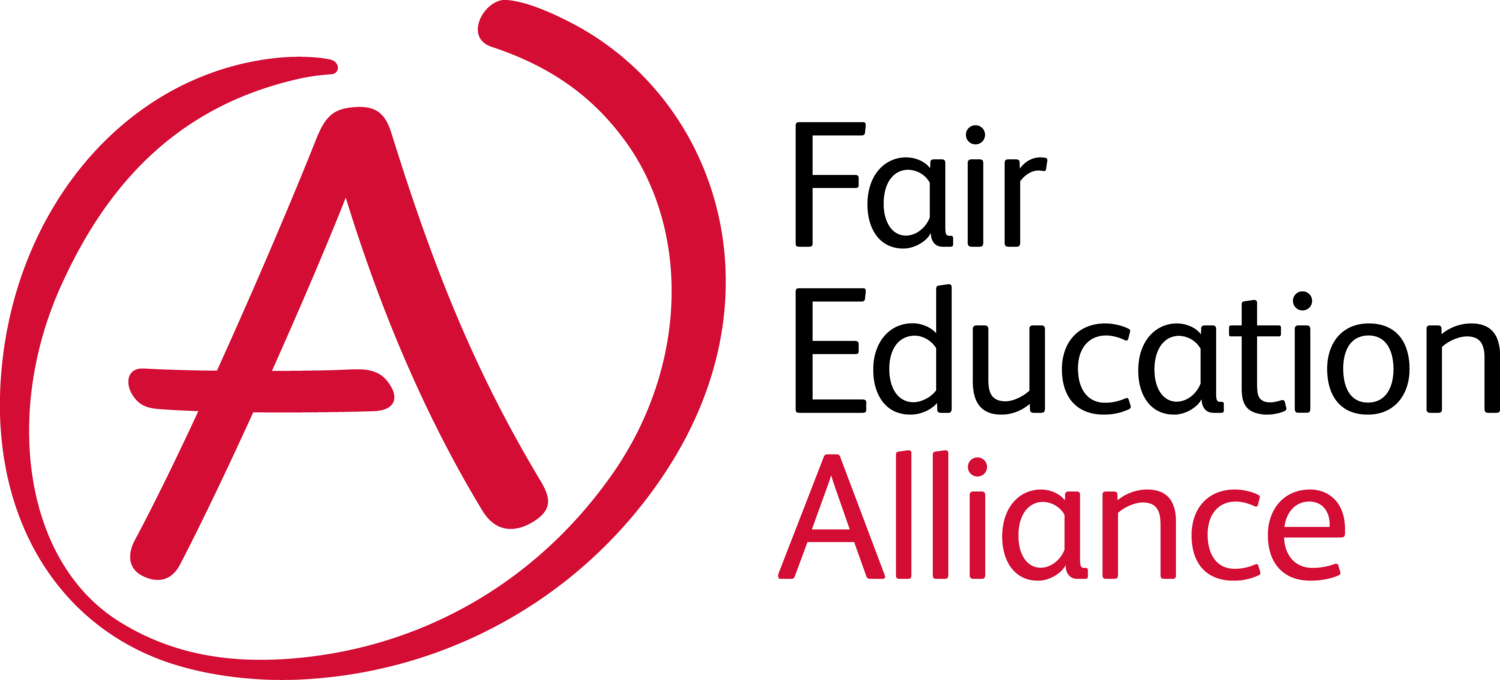Like so many in the education, youth and child protection sectors, The Fair Education Alliance Youth Steering Group have been reflecting over the last month on the horrendous abuse that Child Q experienced in what should have been a safe space.
Following a discussion about how they felt reading the news and what they want to see change, they are calling for a number of changes to tackle racism and failings in child protection including:
Improve safeguarding in schools and ensure child wellbeing is always prioritised.
Include anti-racism and bias awareness as mandatory in all teacher and police training.
Have clear escalation processes which include parents, social workers and mental health support workers first, and only ever include the police as an absolute last resort.
Remove all police presence in schools.
Hold government, social media companies and other organisations accountable for racist content.
Support all children to know about their rights including in relation to interactions with the police.
Read more detail about the group’s reflections below:
The UK Government has failed keeping children safe from traumatic events such as what happened to child Q. Laws and regulations need to be implemented to protect children and their safety, most importantly also teaching children their rights in all sorts of scenarios. Most students are not aware of their rights, and this needs to change. No child should not be given a say as to what happens to them.Steps of situations such as the suspicion of a child carrying drugs needs to be created. In child Q’s case, the police quickly conducted a strip search after a subtle search of her bags and pockets. This was too much of a drastic measure to take, especially since no drugs were found. Race must have been a factor influencing this, and these adults need to be held accountable for their actions. To prevent this from happening in the future, police should be trained on what steps they should take if a child is presumably carrying drugs. Such as doing a drug test or having sniffer dogs try and suspect any illegal substances. Adults that are meant to keep children safe are abusing their rights, and it’s time children knew their own rights to keep themselves safe.
Jumi
After reading about the Child Q case I felt disgusted but not entirely surprised. This is a feeling I have unfortunately become used to. It is easy to become cynical and apathetic after reading about the lack of care and misuse of power that appears to be present in our institutions towards marginalised groups, yet, I ask myself what needs to change?
I believe tackling racism is a deeply complex task and I will never have all the answers regardless of how many books I read or because of my experiences due to the politicisation of my identity as a black Muslim woman. Despite this, I believe the prerequisites for tackling racism in institutions are the analyses of how the current procedures in institutions may intentionally or unintentionally discriminate against marginalised groups, the involvement of marginalised groups in reform, and accountability from external bodies.
An analysis of how institutions could be biased against certain groups will allow us to investigate and reflect on why certain procedures exist and how they can harm the people they should be protecting. This is a starting point that will allow us to modify procedures to be accommodating to marginalised groups. Following this, I believe marginalised groups should be involved in the reformation process. Through research methods such as interviews, data can be collected from the experiences of marginalised groups which can be used to inform new policies that take into consideration historical prejudices. Lastly, ensuring institutions are held accountable is a crucial step to ensuring that they also face consequences if they misuse their power. I believe this is important as it acknowledges the power imbalance between the individual and the institution as well as our moral responsibility to not abuse those in vulnerable positions.
Whilst this may not fix racism entirely, it is an opinion that takes into consideration marginalised groups, institutions, and external bodies of accountability.
Nana
If you’d like to stay up to date with The Youth Steering Group’s work and receive notifications for youth engagement opportunities, please sign up to our Youth Bulletin here.



